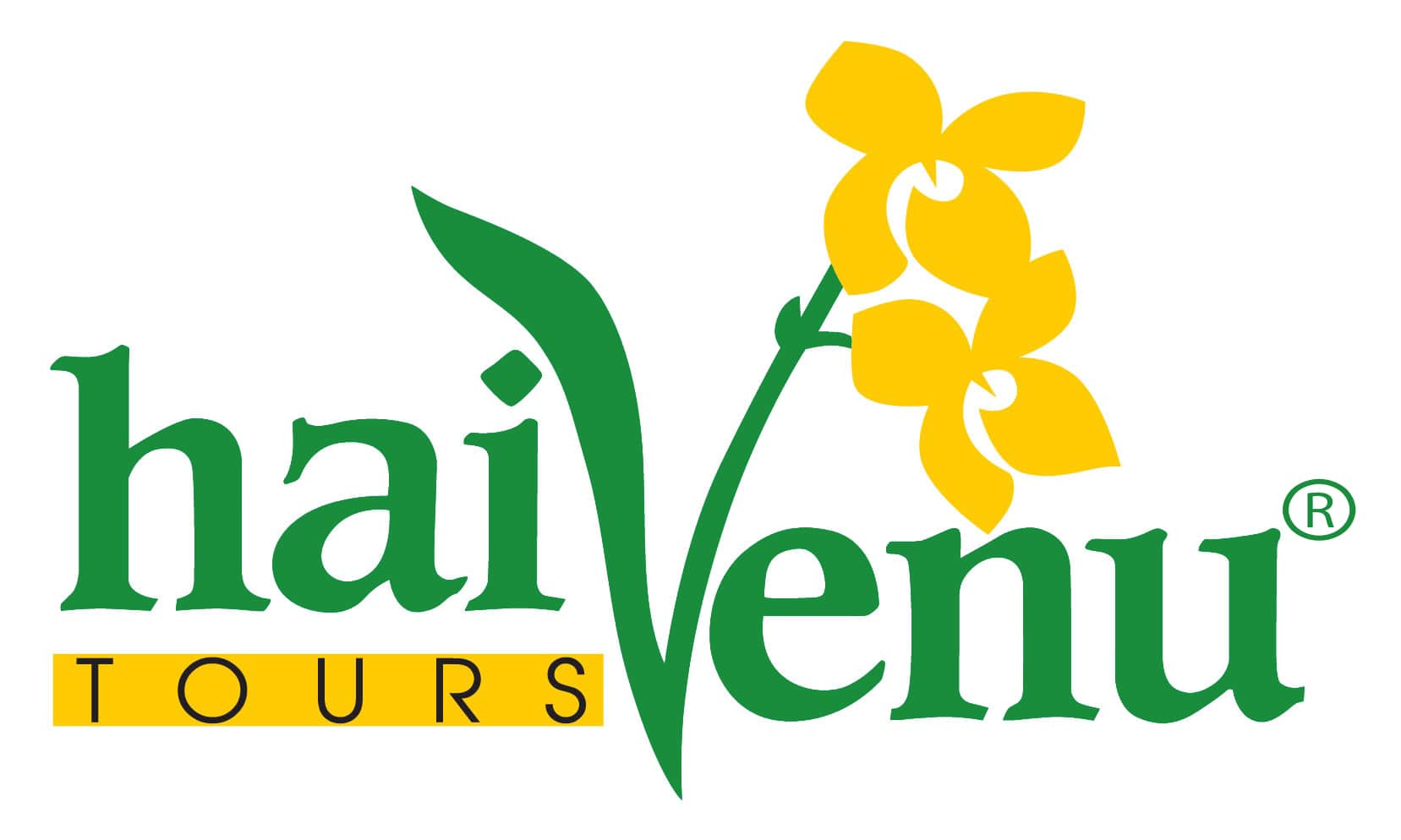The Ultimate Guide to Beggars and Bartering in Vietnam
Last Updated on 28 April, 2024 by admin
Traveling in Vietnam offers a vibrant tapestry of cultural interactions, among which bartering at markets and encountering beggars are commonplace. Bartering is deeply ingrained in the local shopping culture, particularly at markets and street stalls where fixed prices are rare. This practice is not just about getting a good deal; it’s a social interaction, filled with smiles and negotiation, reflecting the lively Vietnamese spirit of commerce. On the other hand, begging presents a more complex picture, varying significantly across different regions of Vietnam. In tourist-frequented areas, one often encounters both genuine and non-genuine beggars, the latter sometimes part of more organized syndicates.
The approach to these practices is culturally nuanced and varies significantly from north to south. In the bustling streets of Hanoi and the colorful markets of Ho Chi Minh City, bartering is almost a ritual, while the approach to beggars can be reflective of the local socioeconomic landscape. Understanding these aspects is crucial for any traveler aiming to respect the local customs and contribute positively to the economic and social environment of Vietnam. This introduction aims to unpack these cultural practices, offering travelers insights into navigating these experiences thoughtfully and respectfully.
Understanding Bartering
In Vietnam, bartering is a common practice not just in bustling markets but also with street vendors and for services like motorcycle taxis and cyclos. When engaging in barter, a light-hearted demeanor and politeness are essential. Typically, when a price is first quoted, it is customary to respond with mock astonishment and counter with an offer that is about a third or half of the initial price. This opens the negotiation process, where both parties work towards a mutually acceptable price. Sometimes, walking away can help determine if the vendor’s last offer is genuinely their best.
However, ethical considerations are crucial. Tourists should strive for fairness rather than the lowest possible price. Overpaying for goods and services can disrupt the local economy, leading to inflated prices that affect both locals and future travelers. Conversely, excessively driving down prices can unduly penalize small vendors.
In specific scenarios like negotiating taxi fares, especially for longer journeys, it is advisable to agree on a price beforehand to avoid surprises. This also applies to other service providers, such as those offering shoe cleaning on the streets. Establish the price upfront to prevent any misunderstandings.
Travelers should also be aware of Vietnam’s remnants of a dual-pricing system, which reflects the income disparity between locals and foreigners. While this system is phasing out, understanding its implications helps travelers navigate pricing more thoughtfully, ensuring interactions remain respectful and mutually beneficial.
Confronting the Reality of Begging
In Vietnam, particularly in tourist areas, travelers often encounter beggars, and distinguishing between genuine need and orchestrated scams can be challenging. Common scams include children who tug at heartstrings with practiced sadness, often working under the control of adult handlers, or young women carrying sleeping babies, potentially rented for the day to elicit sympathy and money. These situations are typically crafted to exploit tourists’ emotions.
When confronting begging, it’s advisable to observe how locals respond to beggars, as this can provide cues on who might genuinely need help. For example, elderly individuals or those with disabilities often receive aid from Vietnamese passersby, indicating their likely genuine need.
To respond appropriately, it’s recommended to avoid giving money directly to beggars showing signs of being part of a scam, as this can perpetuate a cycle of exploitation. Instead, consider contributing to established local charities that support vulnerable populations. If you choose to give directly to individuals who appear genuinely in need, do so discreetly and modestly to avoid drawing attention that might encourage others to beg as a means of income. This approach helps to discourage non-genuine begging while providing aid to those who truly need it.
Supporting Genuine Cases
In Vietnam, genuinely needy individuals often include the elderly, disabled, or those visibly suffering from severe poverty. To support these individuals responsibly, it’s helpful to observe local interactions. Locals often know who in their community is truly in need and respond accordingly, either by giving small amounts of money or sometimes food. Mimicking these interactions can be a respectful and effective way to contribute.
When considering how to give, it’s important to approach the situation with sensitivity and discretion. Here are some guidelines for giving responsibly:
- Small Donations: Offer modest amounts that can help without creating dependency or attracting undue attention that might encourage others to beg.
- Non-monetary Help: Consider giving in kind, such as food or goods, which directly aids the individual without the risk of money being misused.
- Support Through Organizations: For a more impactful contribution, consider donating to reputable local charities or organizations that work to alleviate poverty and support the disadvantaged. These groups ensure that help reaches those who need it most and contributes to long-term solutions.
- Cultural Sensitivity: Be mindful of the local culture and norms when giving. Small, respectful interactions emphasize dignity over pity.
By following these guidelines, your contributions can provide meaningful support to those truly in need, fostering a positive impact in the communities you visit.
Practical Applications
Integrating respectful bartering and responsible giving into your travel experience in Vietnam requires a blend of cultural sensitivity, practical know-how, and modern technology. Here are practical applications to help navigate these interactions effectively:
- Understanding Typical Prices: Before engaging in bartering or making purchases, use apps like Grab and local price comparison websites to get an idea of standard rates for goods and services. This preparation helps you enter negotiations informed and confident, preventing overcharges.
- Technology and Apps: Utilize mobile apps that offer translations and currency conversions to better understand prices and communicate effectively with vendors. Apps like Google Translate or XE Currency Converter can be invaluable tools in ensuring clear communication and understanding of pricing.
- Respectful Bartering Techniques:
- Start negotiations with a smile and a friendly approach. Acknowledging the vendor’s initial price and then counter-offering with a reasonable lower amount shows respect for their livelihood.
- Use humor and maintain a light-hearted demeanor to keep the interaction positive.
- Be prepared to walk away if the price doesn’t meet your expectations. Often, vendors may call you back with a lower offer if they see you’re about to leave.
- Responsible Giving:
- Engage with local communities or guides to identify appropriate ways to contribute to those in need. They can offer insights into the most effective forms of assistance.
- Carry small denominations of local currency to give modest amounts without encouraging reliance on begging.
- Consider buying local products or services from individuals who are clearly in need, which supports them in a dignified manner.
- Cultural Sensitivity: Always be aware of the local customs and etiquette related to money and giving. In Vietnam, how you handle money can communicate respect or insult, so always hand over money with both hands as a sign of respect.
By adopting these practical applications, travelers can enjoy a more authentic and respectful interaction with the local culture and people, enhancing their overall experience in Vietnam.
Legal and Safety Considerations
Navigating the legal and safety considerations while engaging in bartering or encountering beggars in Vietnam is crucial for a secure and respectful travel experience. Here’s a detailed overview to guide tourists:
- Legal Context:
- In Vietnam, street vending and begging are tolerated in many places, but there are regulations that tourists should be aware of. For instance, some areas in major cities may have restrictions on vending and begging to manage congestion and maintain public order.
- It’s important to understand that while street vending is a significant part of the local economy, not all vendors have official permission. Engaging with licensed vendors, typically identified by badges or uniforms, can ensure that your transactions are legally compliant.
- Safety Tips for Bartering:
- Always barter in well-lit, public areas where it’s safe to handle money. Avoid secluded areas where tourists are less visible and more vulnerable.
- Keep your cash and valuables secure and out of sight during negotiations to avoid attracting undue attention.
- Be cautious of too-good-to-be-true offers, as they can sometimes be bait for scams. Trust your instincts—if a deal feels off, it’s okay to walk away.
- Safety Tips When Encountering Beggars:
- It’s advisable to avoid giving cash directly to beggars, especially in crowded tourist spots where this can lead to being mobbed by other beggars. Instead, consider contributing to reputable local charities that support the needy effectively.
- If you choose to give, do so discreetly and safely. Small change or food items can be appropriate, but avoid pulling out wallets or purses, which can attract pickpockets.
- Maintain a respectful distance when interacting with beggars to respect their dignity and your personal space.
- Responding to Aggressive Solicitation:
- In cases where you encounter aggressive vending or begging, it’s important to remain calm and firm. A clear “no, thank you” or ignoring the approach can often be enough.
- If an individual becomes overly insistent or follows you, seek assistance from local authorities or move to a busier area.
Understanding these legal and safety aspects helps ensure that your interactions in Vietnam’s vibrant street culture are not only enjoyable but also respectful of local laws and mindful of personal safety.
Conclusion
In conclusion, navigating the complexities of bartering and begging in Vietnam requires a blend of cultural sensitivity, awareness, and practical caution. Here are the key points to remember:
- Bartering is a cultural norm in many shopping scenarios in Vietnam, especially in markets and street stalls. Embracing this practice with humor and politeness can enhance your shopping experience and help you secure fair prices.
- Be aware of the ethical implications of your interactions. Strive for fair exchanges that respect the livelihoods of local vendors without contributing to inflated prices that could negatively affect the local economy.
- Distinguish between genuine and non-genuine beggars with a critical eye, and choose your response carefully to avoid supporting exploitative practices. Instead, consider contributing to established local charities that offer more sustainable aid.
- Utilize technology to familiarize yourself with typical prices and manage your spending effectively, ensuring that you are neither overpaying nor undervaluing goods and services.
- Stay informed about local laws and safety practices to keep your interactions both legal and secure. Always prioritize personal safety and respect local regulations regarding street vending and begging.
By engaging thoughtfully and respectfully with the practices of bartering and confronting the reality of begging, you contribute positively to the local culture and economy. Your interactions not only shape your travel experience but also impact the communities you visit, underlining the importance of mindful and informed tourism in Vietnam.




